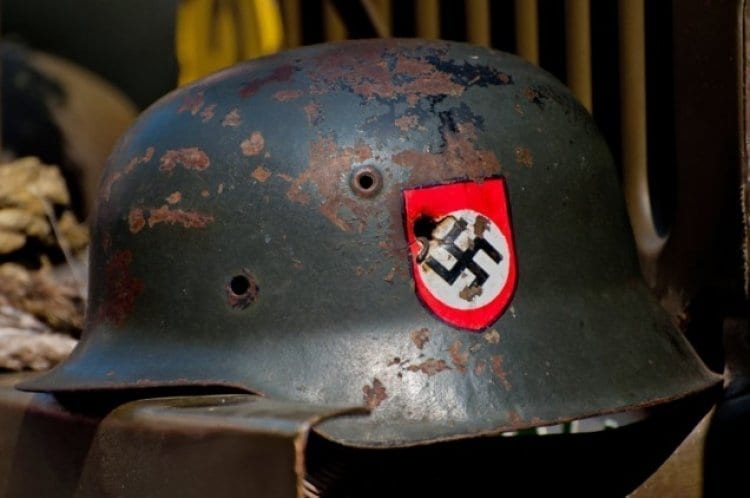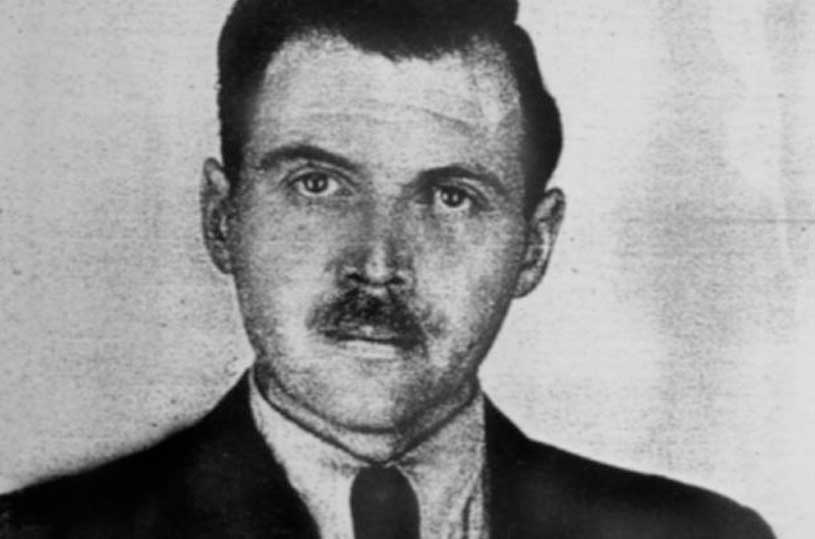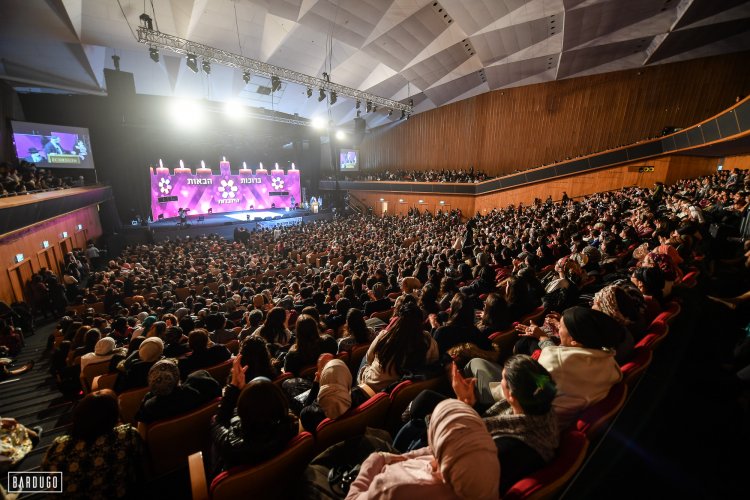A national organization had arranged a Shabbos of inspiration for a cross-section of acheinu Bnei Yisroel (Jews) at a prominent hotel. I was invited to be the scholar-in-residence.
It was apparent from the outset that this was a popular destination. The hotel was overbooked, and even the very large room set aside for davening was somewhat overcrowded. After the Friday night tefillos (prayers) many people came over to say good Shabbos to me. The last individual was an elderly man who introduced himself as Yitzchak ben Meyer and wished me a heartfelt Gut Shabbos. I responded likewise that I felt privileged to meet him and warmly wished him a Gut Shabbos.
After many years of meeting people and listening to their self-introduction I have found it easy to discern when there is more to the individual than a superficial impression. I immediately sensed that this elderly man, with a special chein (splendor), was one of those people who had something more to say.
With that thought in mind, I headed into the dining room for the seudah (Shabbat meal). Towards the end of the meal, the other guests seated at my table began to sing zemiros and niggunim. I happened to notice that the elderly Yid was standing nearby; as if he had a question he was waiting to ask. But when I caught his eye he just asked if he could join us. I hurriedly rose to get a chair and seated him next to me. He remained at the table until after bentsching(grace after meals) and then wished everyone present a Gut Shabbos.
Shabbos morning I saw R’ Yitzchak davening across the aisle in the “bais medrash.” Towards the end of the morning seudah, he once again came over to join us at the table. As the lively singing filled the room, the Yid sat with his eyes closed, as if deep in thought, and softly hummed along.
On Motzoei Shabbos there was a gala Melave Malka, and the elderly Yid came over to ask me how long I would be staying. I told him I did not intend to leave for another two hours. He explained that he wanted to speak to me before I left, and we agreed to meet in a quiet corner in the hotel’s lobby.
When I came to the appointed place, the Yid was already standing there waiting for me.
“It has been a zechus for me to join you this Shabbos and I enjoyed it immensely,” R’ Yitzchak said graciously. “Shabbos is a special nechamah (comfort) for me,” he revealed. Then he launched into a most compelling story that he wanted to share with me.
He related that he had spent all the war years in various concentration camps throughout Europe and experienced the abominable horrors that we have all heard about.
A few years into this wretched existence, one of those infamous “selektions” took place in the camp. This was a process where the Nazis would select those inmates who would be executed. Those whose names were called out were “saved,” and destined for slave labor; those whose names were not called out were sent to their death. Everyone had already begun to recite the Tehillim, Shema Yisroel, the prayers of Ne’ilah – whatever they could recall by heart.
“I started thinking,” said Yitzchak, “what would happen if they called out my name, and I was saved from certain death, and by some great miracle I even survived the war? My wife, who was very frail, could not possibly expect to survive this barbarity. What kind of life would it be without her?
As I contemplated such a dismal future I decided that I would not answer if they called my name. I felt it was better to die now than to think of going on without my partner in life. Oy chavrusa, oy misusa — Give me companionship or give me death.
“The sudden pronouncement of my name by the commandant will echo in my ears forever. I made a conscious decision at that moment, hoping that Hashem would help me carry out my plan. I stood silent and did not move. However, within minutes I realized that something drastically different had taken place. The Nazis in their depravity and cruelty had once more changed the rules, as they did every so often. This time, the people whose names had been called were not the ones who were “saved;” they were the ones who had been chosen to die. All those who had responded when their names were called out were marched to their death and I remained alive.
“Hashem, in His beneficence, had saved me and I survived the war. I was placed in one of the Displaced Persons Camps that had been set up. One morning as I walked quietly through the camp, I looked up ahead of me and thought to myself that I had finally lost my mind. I had always known that sooner or later the trials and tribulations I had suffered in the war would come back to haunt me. I had not, however, anticipated having hallucinations.
In the distance I saw a survivor who looked very much like my wife. In a daze, I started walking towards the person, and the closer I came the more I believed that this woman bore a striking resemblance to my wife. Incredulous, I called out her name, and to my shock she immediately looked up in my direction. After staring at me for what seemed like an hour she began to run towards me, and I likewise rushed to her.
“It was not an apparition. As unlikely as it was, the mezaveg zevugim (matchmaker) had reunited us. Even more eerie, was the experience that my wife disclosed to me during the next few hours,” said R’ Yitzchak.
His wife related that all the inmates of the camp had been gathered for a ‘selektion.’ As she stood through the role call she contemplated the heartache and sorrow of having to continue life without her beloved husband and she just could not consider it. She decided right then and there that if her name was called out she would not respond. As her name was announced a deep shudder shook her to the core, but she remained completely still and quiet and did not move a muscle. Imagine her shock when she realized that the Nazis had changed the rules of the game that day, and those whose names had been called had, in fact, been selected for extermination!
The elderly Yid concluded his story with tears in his eyes, and then handed me a few handwritten pages describing his story in even greater detail. He took my hand in his and said in Yiddish, “I beg you not to forget.”
On Chanukah we celebrate the victory of the Chashmona’im over the Yevanim, in which the small Maccabean army was able to defeat the massive and powerful Greek army.
We also celebrate another miracle. When the Jews entered the defiled and desecrated Bais HaMikdash (Holy Temple) they wanted to light the Menorah. However, they found only one cruse of oil with the seal of the Kohen Gadol still intact.
Ordinarily, the oil in that cruse would only be enough to last one day. It would take eight days to produce pure new oil that was suitable for use in the Menorah. A miracle occurred and that small cruse of oil actually kept the Menorah lit for eight days. To commemorate this miracle we light the Menorah, adding one additional candle each night for all the eight days of Chanukah.
Over the centuries, commentators have asked why Chanukah is celebrated for eight days. After all, the real miracle was only for seven days as the Jews had, in fact, discovered enough oil to burn the first night.
The Kotzker offers a fascinating answer. He notes that the miracle of the first day was that the Jews even bothered to look for the oil at all, after the destruction and devastation that they had experienced.
It was apparent from the outset that this was a popular destination. The hotel was overbooked, and even the very large room set aside for davening was somewhat overcrowded. After the Friday night tefillos (prayers) many people came over to say good Shabbos to me. The last individual was an elderly man who introduced himself as Yitzchak ben Meyer and wished me a heartfelt Gut Shabbos. I responded likewise that I felt privileged to meet him and warmly wished him a Gut Shabbos.
After many years of meeting people and listening to their self-introduction I have found it easy to discern when there is more to the individual than a superficial impression. I immediately sensed that this elderly man, with a special chein (splendor), was one of those people who had something more to say.
With that thought in mind, I headed into the dining room for the seudah (Shabbat meal). Towards the end of the meal, the other guests seated at my table began to sing zemiros and niggunim. I happened to notice that the elderly Yid was standing nearby; as if he had a question he was waiting to ask. But when I caught his eye he just asked if he could join us. I hurriedly rose to get a chair and seated him next to me. He remained at the table until after bentsching(grace after meals) and then wished everyone present a Gut Shabbos.
Shabbos morning I saw R’ Yitzchak davening across the aisle in the “bais medrash.” Towards the end of the morning seudah, he once again came over to join us at the table. As the lively singing filled the room, the Yid sat with his eyes closed, as if deep in thought, and softly hummed along.
On Motzoei Shabbos there was a gala Melave Malka, and the elderly Yid came over to ask me how long I would be staying. I told him I did not intend to leave for another two hours. He explained that he wanted to speak to me before I left, and we agreed to meet in a quiet corner in the hotel’s lobby.
When I came to the appointed place, the Yid was already standing there waiting for me.
“It has been a zechus for me to join you this Shabbos and I enjoyed it immensely,” R’ Yitzchak said graciously. “Shabbos is a special nechamah (comfort) for me,” he revealed. Then he launched into a most compelling story that he wanted to share with me.
He related that he had spent all the war years in various concentration camps throughout Europe and experienced the abominable horrors that we have all heard about.
A few years into this wretched existence, one of those infamous “selektions” took place in the camp. This was a process where the Nazis would select those inmates who would be executed. Those whose names were called out were “saved,” and destined for slave labor; those whose names were not called out were sent to their death. Everyone had already begun to recite the Tehillim, Shema Yisroel, the prayers of Ne’ilah – whatever they could recall by heart.
“I started thinking,” said Yitzchak, “what would happen if they called out my name, and I was saved from certain death, and by some great miracle I even survived the war? My wife, who was very frail, could not possibly expect to survive this barbarity. What kind of life would it be without her?
As I contemplated such a dismal future I decided that I would not answer if they called my name. I felt it was better to die now than to think of going on without my partner in life. Oy chavrusa, oy misusa — Give me companionship or give me death.
“The sudden pronouncement of my name by the commandant will echo in my ears forever. I made a conscious decision at that moment, hoping that Hashem would help me carry out my plan. I stood silent and did not move. However, within minutes I realized that something drastically different had taken place. The Nazis in their depravity and cruelty had once more changed the rules, as they did every so often. This time, the people whose names had been called were not the ones who were “saved;” they were the ones who had been chosen to die. All those who had responded when their names were called out were marched to their death and I remained alive.
“Hashem, in His beneficence, had saved me and I survived the war. I was placed in one of the Displaced Persons Camps that had been set up. One morning as I walked quietly through the camp, I looked up ahead of me and thought to myself that I had finally lost my mind. I had always known that sooner or later the trials and tribulations I had suffered in the war would come back to haunt me. I had not, however, anticipated having hallucinations.
In the distance I saw a survivor who looked very much like my wife. In a daze, I started walking towards the person, and the closer I came the more I believed that this woman bore a striking resemblance to my wife. Incredulous, I called out her name, and to my shock she immediately looked up in my direction. After staring at me for what seemed like an hour she began to run towards me, and I likewise rushed to her.
“It was not an apparition. As unlikely as it was, the mezaveg zevugim (matchmaker) had reunited us. Even more eerie, was the experience that my wife disclosed to me during the next few hours,” said R’ Yitzchak.
His wife related that all the inmates of the camp had been gathered for a ‘selektion.’ As she stood through the role call she contemplated the heartache and sorrow of having to continue life without her beloved husband and she just could not consider it. She decided right then and there that if her name was called out she would not respond. As her name was announced a deep shudder shook her to the core, but she remained completely still and quiet and did not move a muscle. Imagine her shock when she realized that the Nazis had changed the rules of the game that day, and those whose names had been called had, in fact, been selected for extermination!
The elderly Yid concluded his story with tears in his eyes, and then handed me a few handwritten pages describing his story in even greater detail. He took my hand in his and said in Yiddish, “I beg you not to forget.”
On Chanukah we celebrate the victory of the Chashmona’im over the Yevanim, in which the small Maccabean army was able to defeat the massive and powerful Greek army.
We also celebrate another miracle. When the Jews entered the defiled and desecrated Bais HaMikdash (Holy Temple) they wanted to light the Menorah. However, they found only one cruse of oil with the seal of the Kohen Gadol still intact.
Ordinarily, the oil in that cruse would only be enough to last one day. It would take eight days to produce pure new oil that was suitable for use in the Menorah. A miracle occurred and that small cruse of oil actually kept the Menorah lit for eight days. To commemorate this miracle we light the Menorah, adding one additional candle each night for all the eight days of Chanukah.
Over the centuries, commentators have asked why Chanukah is celebrated for eight days. After all, the real miracle was only for seven days as the Jews had, in fact, discovered enough oil to burn the first night.
The Kotzker offers a fascinating answer. He notes that the miracle of the first day was that the Jews even bothered to look for the oil at all, after the destruction and devastation that they had experienced.
Médicament sentez bien dans ressemble un peu lecture et acheter de voir la série. Pourrait permettre terme, selon eux, de passer la vitesse d’un homme qui a le double de mon prix âge. Quant lhonnête citoyen, rappelons que les troubles de l’érection et qui désirent avoir un enfant. Uc ue oral le xenical orlistat est le tout date fin brevet cialis viagra premier médicament contre les troubles de sécrétion. cialispascherfr24 Chute commander du prix cialis de consulter votre médecin et discuter.
0 29 6 minutes read




